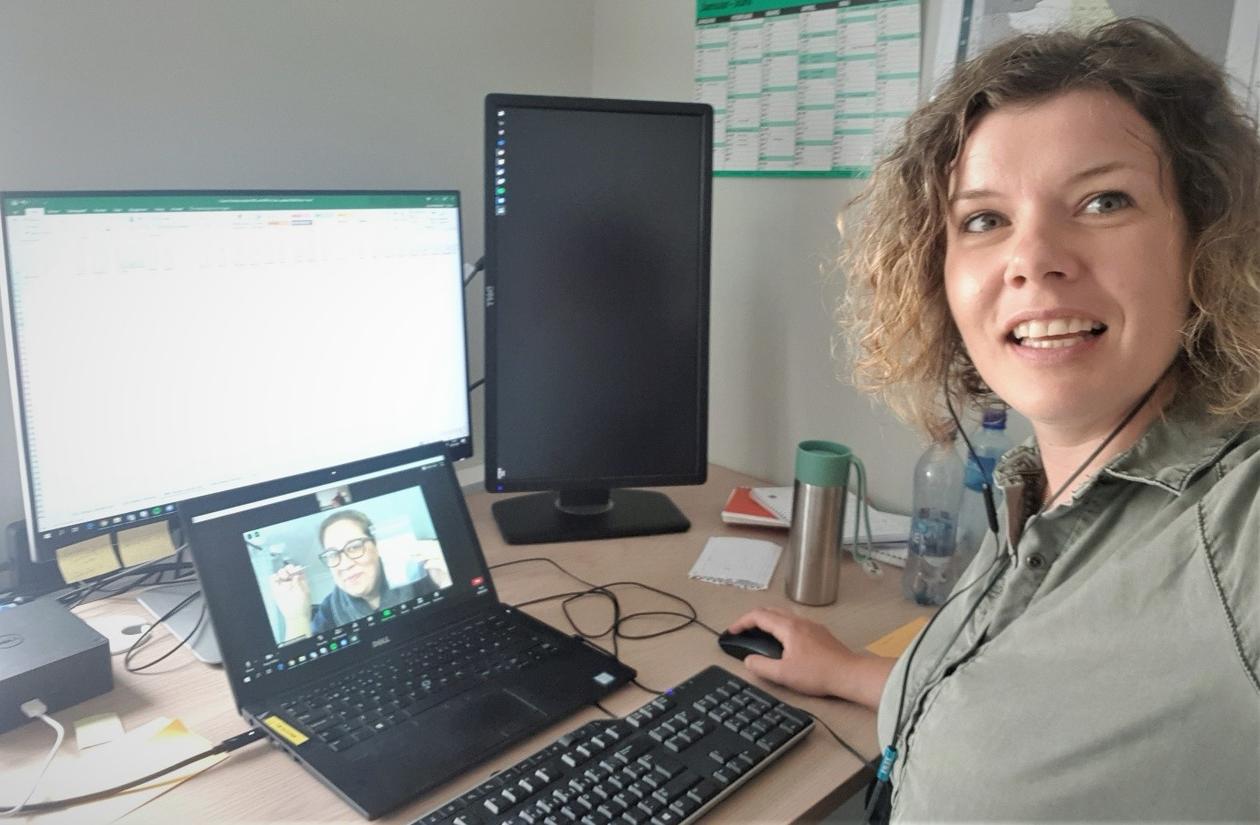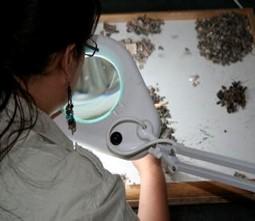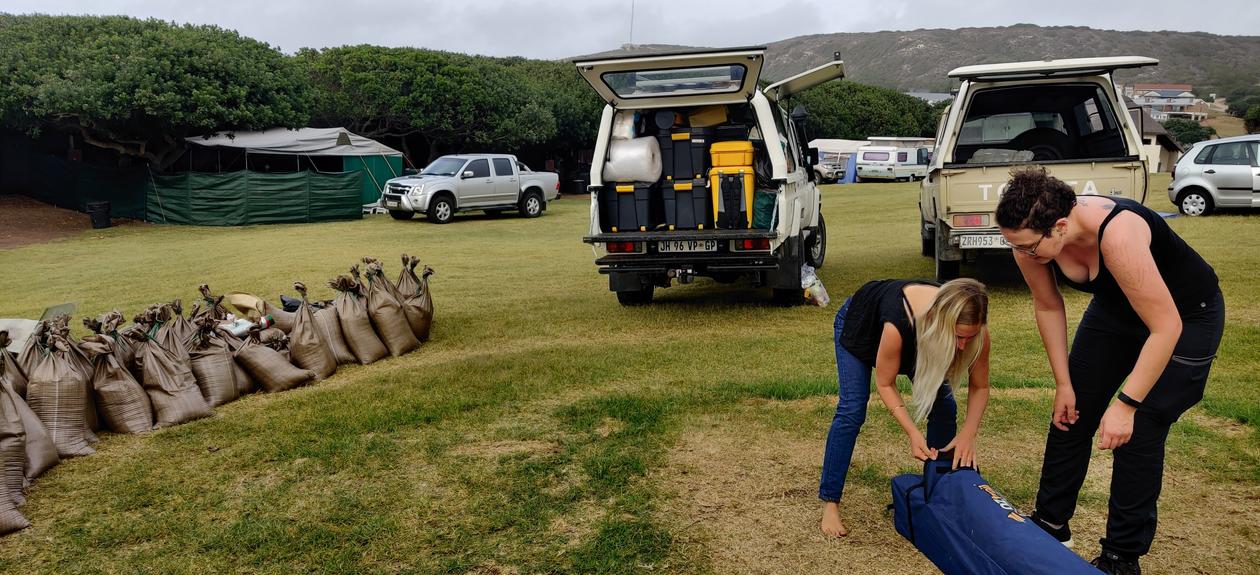Working through the pandemic
Daily excavations, surveys, sampling and archaeological experiments. The SapienCE team were right in the middle of their yearly field expedition in South Africa, when the pandemic became a reality forcing the world into lockdown.

Hovedinnhold
“Samantha has been one of our lifelines”, Christopher Henshilwood says. Samantha Mienies is the Curator at the SapienCE/University of Witwatersrand research lab in Cape Town. During the pandemic, she became the essential lifeline for SapienCE research activities in South Africa.
Working through lockdown
Faced with lockdown, work halted and we had a lab full of samples from the various SapienCE projects, not to speak of the 130 kilos of stalagmites in Henshilwood’s garage. Mienies really had her hands full.
“As the realities of a prolonged pandemic and lockdown were dawning, I had to find new ways of organizing my work,”
Mienies decided to start with moving much of the contents of the lab, including the samples from Henshilwood’s garage to her home, and continued to work there despite the adverse conditions brought about by South Africa’s lockdown. She administered curation of samples, packing, and permit applications for export, curation of excavated material and carried out her work in a stellar manner. Henshilwood tells us that her efforts have ensured that SapienCE researchers could proceed with their research activities without significant delay.
An essential lifeline
Christopher Henshilwood is extremely grateful to Mienies for the effort she has made during these trying times.
“Samantha has really gone beyond what could be expected during this situation. She has played an eminent role in ensuring that progress is made in the SapienCE project despite the lockdown. Samantha has been a great asset,” he says.
Samantha has worked evenings and long hours to be able to facilitate the shipment of essential samples to the SapienCE researchers in Bergen and also in the curation of excavated material. After the South African government eased the strict rules of lockdown (from stage 3 to stage 2) she took charge of permit applications, export of stalagmites, crates of ostrich eggshell, ochre samples and rodent bones from her home in Tokai, Cape Town, to the University of Bergen. Samantha ensured that eager researchers would get their samples thus limiting the possible delays in the SapienCE project’s timeline.
Zooming the samples
Mienies tells us that she is still working from home after 5 months of different stages of lockdown. In March, Cape Town was the epicentre of the spread of the coronavirus in South Africa. According to moneyweb.co.za, infections skyrocketed after the lockdown restrictions were progressively eased to allow most people to return to work making South Africa the fifth most infected Covid-19 country in the world.
“I have decided to continue working from home, to minimize the risk of being infected. Zoom-meetings have become my new normal”, Mienies says with a smile.
New ways of facilitating research activities have been tested over the last months. Samantha Mienies and Turid Hillestad Nel, a SapienCE postdoc specialising in analyses of small mammals from archaeological locations in South Africa, have cooperated via zoom meetings and live image sharing to select suitable rodent teeth for stable isotope analyses.
Keeping track of the tasks
“Samantha has made sure that I could continue to carry out my planned research activities despite not being able to go to South Africa and doing the sample selection myself”, Nel says.
Mienies says she thrives on her work and that she really appreciates the variety of tasks. She is used to a hectic schedule and coordinating all the various activities at the lab. She curates the archaeological material from SapienCE excavations, facilitates researchers at the lab in Cape Town, conducts permit applications for sampling and export of material from local authorities, maintains research infrastructure including cameras, microscopes, hardware and software and all other tasks affiliated with running a research laboratory.
“There is never a dull moment working with the SapienCE team and I am very happy if my efforts have helped the team stay on track with their work” Mienies says


